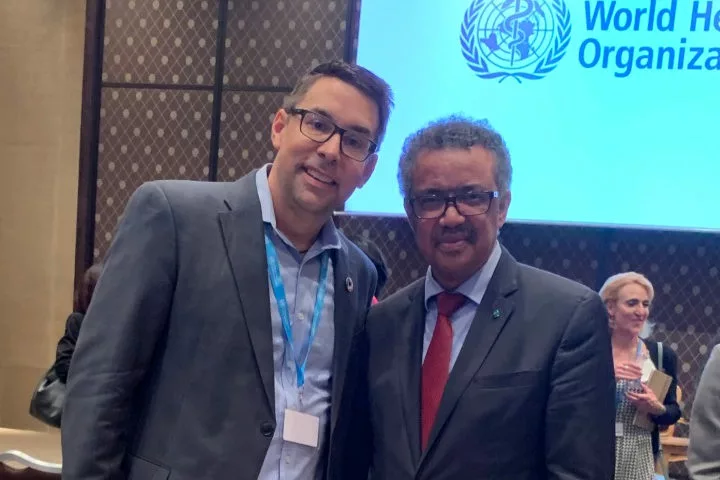In the past five years, however, Dr. Tupesis’s focus has shifted from establishing training programs to enacting change on the health care systems and infrastructure in which these programs operate. He works with the World Health Organization and the World Bank on education policy and international resource allocation projects, and he oversees the health programs for the World Bank African Centers of Excellence for Impact Project, an initiative working to build academic capacity across Africa.
“The significance is advocacy and trying to effectively effect change, and—especially for people’s access to emergency care worldwide—strengthening those systems,” he said.
Fighting for health equity and providing quality care to patients have motivated Dr. Tupesis throughout his career, and while grateful for the honor, he remains focused on work that still needs to be done.
“I have two kids. Every parent everywhere in the world loves their kids and wants the best for them. I think it’s incredibly unfair that just because you live somewhere else, that doesn’t happen. In my fundamental core of why I went into medicine, I just don’t think that’s right,” he said. “I think that trying to advocate for equity, equality and access to health care as a universal platform is what keeps me going.”
Dr. Tupesis said he hopes to continue to develop community and fight for health equity at both the local and global levels. One of his goals is to help implement the World Health Assembly resolution 72.16, which aims to develop emergency care systems for universal coverage to ensure timely care for the ill and injured. At UW, he would like to help programs such as the Global Health Institute flourish to shape a new generation of physicians and students.
“I think that we have a tremendous amount to give, not only to our local community but to our global community, and so looking at innovative projects and outreach, the University can do remarkable things,” he added.
Dr. Tupesis has been involved in International Federation of Emergency Medicine for 10 years and was elected to the Board of Directors in June. The official induction ceremony into the Order for the International Federation of Emergency medicine is scheduled to occur in Dubai in 2021.


